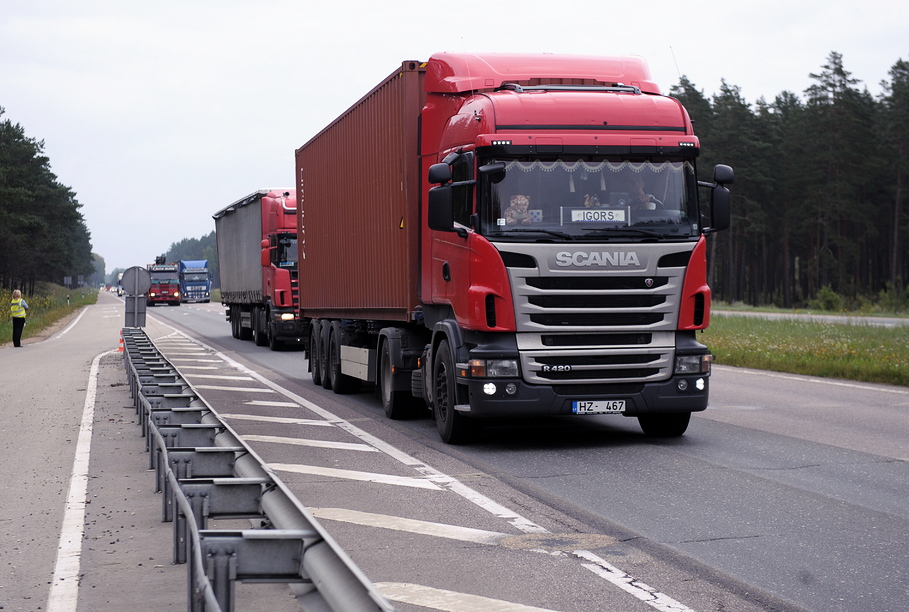Matiss told Latvian Radio (LR) that the government is considering certain forms of tax breaks and credit guarantees to help trucking companies facing heavy impacts from Russia’s broad food products embargo.
Refrigerated trucks are used in the transport of most types of food products in fresh or frozen form. There are altogether about 1,500 such vehicles operating in Latvia, half of which are owned by the company Kreiss. Of the cargoes carried by these 1,500 trucks, between 80% and 90% service Russia’s transit market. That comprises 10% of Latvia’s entire commercial transport services sector.
Hopes are low for finding alternative ways of putting the unladen trucks to work during the standstill in the food products trade with Russia. Like their Latvian counterparts, Polish truckers are also stuck without anyplace to take the products originally intended for sending to Russia.
On his part, Latvian Commercial Transport Association Latvijas auto president Valdis Trēziņš told national information agency LETA that the trucking industry had survived previous crises and there was no need for panic now. He said the greatest problem facing transport firms is the fact that most trucks are on lease and therefore vulnerable to repossession by banks if idle for too long. Each truck provides employment for an average 1.2 truck drivers, thus he said he also expects problems in the jobs sector. This will hit larger fleets servicing the refrigerated goods niche especially hard, warned Trēziņš.
Logistics Association board chairman Normunds Krūmiņš told LETA the government needs to first of all reduce the bureaucratic burden on the current commercial trucking regime. He suggested Latvian transport companies might look to China’s exporters to the EU for alternative market solutions to the Russian embargo.





























